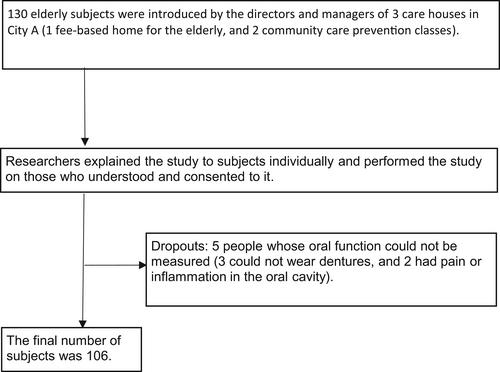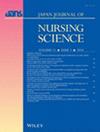Effects of oral function and depressive tendencies on nutritional status in older adults requiring support or low-level care: An investigation using path analysis
Abstract
Aim
This study investigated the effects of differences in oral function and depressive tendencies on nutritional status in older adults requiring support or low-level care.
Methods
In 106 older adult participants residing in nursing/care homes or participating in community-level preventive care activities, the Mini Nutritional Assessment-Short Form (MNA®-SF) for nutritional status and oral diadochokinesis (ODK), tongue pressure, and repetitive saliva swallowing test (RSST) for oral function, 15-item Geriatric Depression Scale (GDS), Diet-Related Quality of Life Scale-Short Form (DRQOL-SF), and Functional Independence Measure (FIM) were administered. Basic information, including cognitive function, was evaluated. Hierarchical MNA (dependent variable)-based multiple regression analysis was performed, followed by path analysis using factors with significant associations with MNA scores.
Results
RSST, ODK, tongue pressure, FIM, and DRQOL were positively correlated with MNA scores and GDS was negatively correlated. Hierarchical multiple regression demonstrated associations with tongue pressure, GDS, FIM, DRQOL scores, and gender. Path analysis confirmed significant paths from tongue pressure to MNA, tongue pressure to FIM, and FIM to MNA (P < .001). Significant paths were confirmed from GDS to MNA (P < .01), from DRQOL to MNA (P < .05), and from gender to MNA (P < .01).
Conclusions
Tongue pressure, GDS, FIM, DRQOL scores, and gender were identified as factors that directly affect MNA. Tongue pressure showed the greatest effect and indirectly affected MNA via FIM. These findings emphasize the importance of early detection of low nutritional risk for preventing depression and oral function deterioration, and of evaluation of dietary satisfaction and improvement of quality of life in diets.


 求助内容:
求助内容: 应助结果提醒方式:
应助结果提醒方式:


